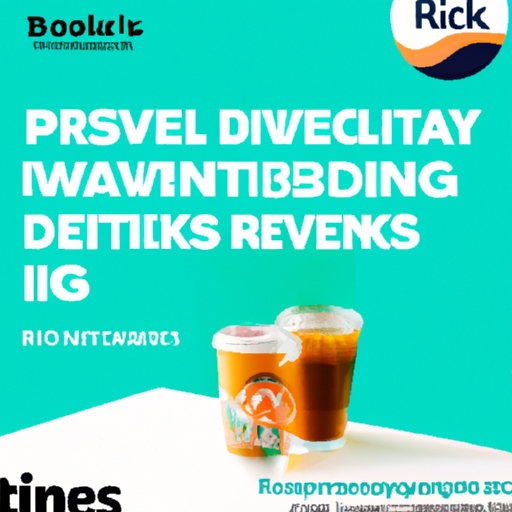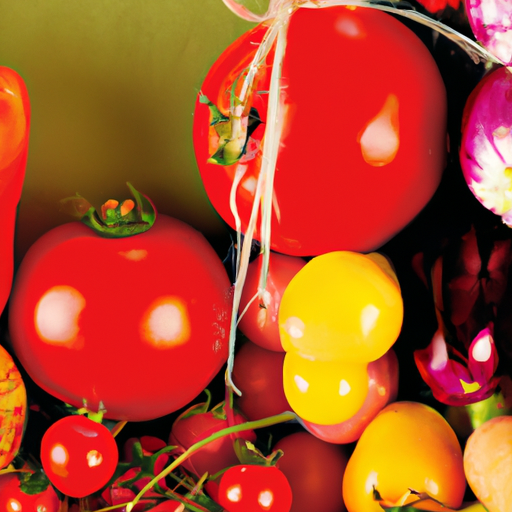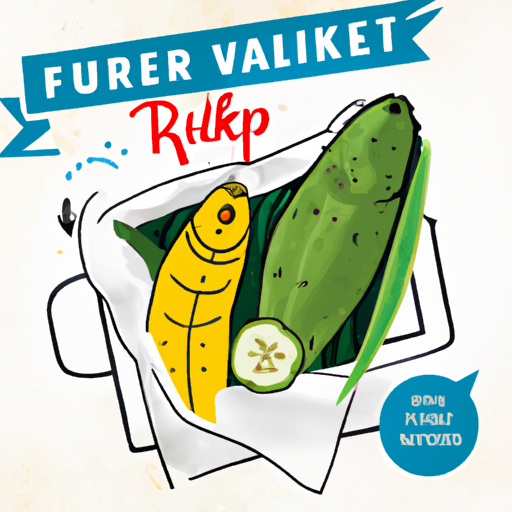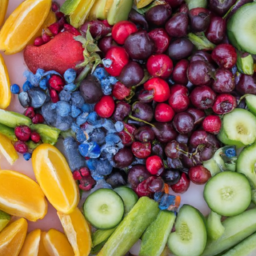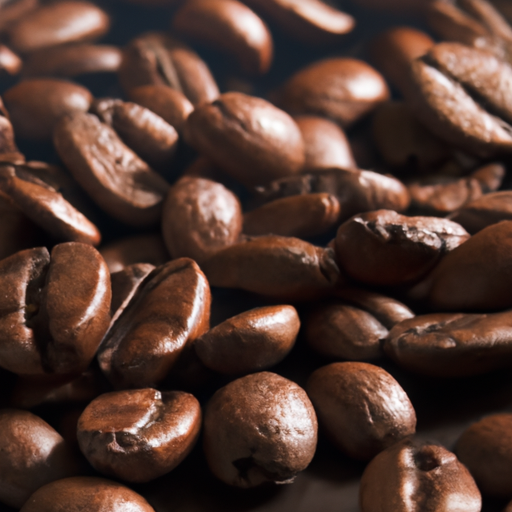Beverage Industry Trends
In the world of beverages, trends are constantly evolving and shaping the industry. From innovative flavors to health-conscious options, the beverage industry continues to surprise and captivate consumers. With a focus on capturing the latest trends, this article explores the dynamic landscape of the beverage industry and highlights the exciting developments that are redefining what we sip and savor. Stay tuned as we uncork the trends that will quench your curiosity and leave you thirsty for more.
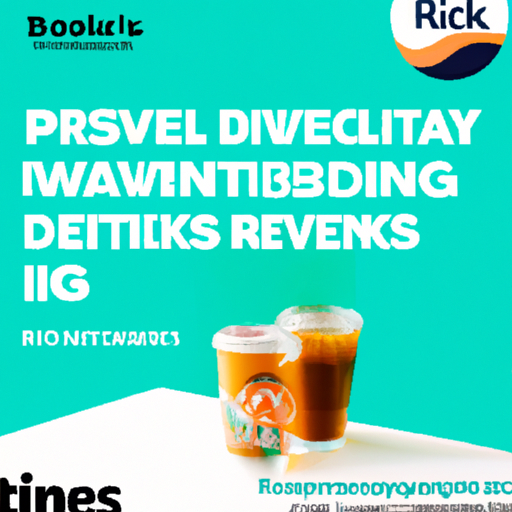
Table of Contents
Healthy Beverage Options
Increased demand for low-sugar and natural drinks
With an increased focus on health and wellness, there has been a growing demand for low-sugar and natural beverage options. Consumers are becoming more conscious of their sugar intake and are seeking alternatives to traditional sugary drinks. As a result, beverage companies have been innovating and introducing healthier alternatives that are made with natural sweeteners such as stevia or monk fruit. This allows consumers to enjoy their favorite beverages without compromising on taste or health.
Rise of plant-based beverages
Plant-based diets have been on the rise, and the beverage industry has responded to this trend by introducing a wide variety of plant-based beverages. These include options such as almond milk, oat milk, soy milk, and coconut water. Plant-based beverages not only cater to vegetarians and vegans but also appeal to those looking for dairy alternatives or a more sustainable option. The availability of plant-based options has expanded significantly, giving consumers more choices when it comes to selecting their preferred beverage.
Innovation in functional beverages
Functional beverages are drinks that offer additional health benefits beyond basic hydration. These beverages are often formulated with added vitamins, minerals, antioxidants, or other beneficial ingredients. With the increasing popularity of functional foods and supplements, the demand for functional beverages has also grown. Companies are now incorporating ingredients such as probiotics, collagen, and adaptogens into their beverages to meet the consumer’s desire for added functionality. Functional beverages offer a convenient way for consumers to support their overall health and well-being on the go.
Sustainability and Environmental Concerns
Growing preference for eco-friendly packaging
As environmental awareness continues to grow, consumers are placing a greater emphasis on sustainability and eco-friendliness. This has led to a shift in preference towards beverages that are packaged in eco-friendly materials such as glass, aluminum, or compostable packaging. Consumers are actively choosing brands that prioritize sustainability and reduce their environmental footprint through their packaging choices.
Emergence of zero-waste initiatives
The beverage industry is taking steps towards reducing waste and embracing zero-waste initiatives. This includes implementing sustainable production practices, utilizing reusable or refillable packaging models, and finding creative ways to repurpose byproducts. Zero-waste initiatives not only contribute to environmental conservation but also resonate with consumers who value sustainable practices and responsible consumption.
Focus on reducing carbon footprint
A key concern for both consumers and beverage companies is the reduction of carbon footprint. This involves minimizing energy consumption, utilizing renewable energy sources, optimizing distribution systems to reduce transportation-related emissions, and implementing waste management practices. Companies are increasingly adopting sustainable practices to reduce their environmental impact and meet the expectations of environmentally conscious consumers.
Premiumization and Craft Beverages
Demand for artisanal and small-batch drinks
The desire for premium experiences has led to a rising demand for artisanal and small-batch beverages. Consumers are seeking unique and high-quality options that offer a taste of craftsmanship and exclusivity. Small-batch beverages are often made with unique ingredients or processes, providing a distinct flavor profile that sets them apart from mass-produced alternatives. This trend reflects consumers’ willingness to pay a premium for products that offer superior quality and an exceptional drinking experience.
Rise of craft beer and spirits
Craft beer and spirits have witnessed significant growth in recent years. Consumers are increasingly drawn to the authenticity and craftsmanship associated with these beverages. Craft breweries and distilleries have emerged, offering a wide range of unique flavors and styles that cater to individual preferences. This trend has not only elevated the beer and spirits industry but has also created a sense of community and excitement among enthusiasts who appreciate the passion and artistry behind each craft beverage.
Gourmet coffee and tea options
The demand for gourmet coffee and tea options has reached new heights. Consumers are no longer satisfied with generic instant coffee or standard tea bags. Instead, they are looking for specialty coffees and teas that offer distinct flavors, origins, and brewing methods. Gourmet coffee and tea establishments have gained popularity, providing a curated selection of high-quality blends and an immersive experience for coffee and tea lovers. Whether it’s a single-origin pour-over coffee or a handcrafted loose-leaf tea, consumers are embracing the opportunity to indulge in unique and luxurious beverage experiences.
Convenience and On-the-go Drinks
Increasing popularity of ready-to-drink beverages
In today’s fast-paced world, convenience plays a crucial role in beverage choices. Ready-to-drink beverages have gained immense popularity due to their time-saving nature and ease of consumption. From bottled iced teas and coffees to canned carbonated drinks and fruit juices, the market for ready-to-drink beverages continues to expand. These beverages offer a quick and hassle-free solution for consumers who are constantly on the go and need a refreshing option that can be conveniently consumed anywhere.
Expansion of grab-and-go options
Grab-and-go options have become a staple in many beverage establishments, catering to busy individuals who need a quick and easy drink. This includes self-serve stations, vending machines, and specialty stores that offer a variety of beverages that can be quickly grabbed and enjoyed. The expansion of grab-and-go options provides consumers with a wider range of beverage choices, promoting convenience and accessibility.
Convenient packaging and single-serve formats
Convenience packaging and single-serve formats have become a popular choice for consumers who value portability and portion control. Single-serve bottles, cans, and pouches offer a convenient way to enjoy beverages without the need for additional preparation or serving. These packaging formats also reduce the risk of waste, as consumers can easily consume the desired amount without any leftovers. Beverage companies are increasingly focusing on developing packaging solutions that fulfill the needs of consumers seeking convenience without compromising on taste or quality.
Personalization and Customization
Rise of made-to-order beverages
personalization has become a key aspect of the beverage industry, catering to consumers who value individuality and customization. Made-to-order beverages allow consumers to choose their desired ingredients, flavors, and additions, creating a drink that perfectly suits their preferences. From customizable smoothies and milkshakes to build-your-own coffee and tea blends, the rise of made-to-order beverages offers a unique and exciting experience for consumers who want their beverages tailored to their specific tastes.
Increased use of technology for customization
Technology has played a significant role in facilitating customization within the beverage industry. From mobile apps to self-serve kiosks, consumers can now use digital interfaces to personalize their beverage orders. This includes selecting flavors, adjusting sweetness levels, and adding extra ingredients. The use of technology not only enhances the customization process but also allows for a faster and more efficient ordering experience, meeting the demands of tech-savvy consumers.
Promotion of DIY drink experiences
DIY (do-it-yourself) drink experiences have gained popularity, providing consumers with the opportunity to create their own beverages at home. This trend involves the use of at-home brewing kits, mixology sets, and recipe books that offer step-by-step instructions for creating unique drinks. DIY drink experiences allow consumers to experiment with flavors, ingredients, and techniques, encouraging creativity and providing a sense of accomplishment. This trend taps into consumers’ desire for hands-on experiences and the satisfaction of crafting their own personalized beverages.
Functional and Wellness-focused Beverages
Growing demand for health-enhancing drinks
Consumers are increasingly prioritizing their health and well-being, leading to a growing demand for beverages that offer specific health benefits. Functional and wellness-focused beverages have emerged as a popular choice, providing additional nutrients and promoting overall well-being. This includes drinks that support immunity, aid digestion, promote hydration, or provide specific vitamins and minerals. The availability of health-enhancing beverages allows consumers to incorporate beneficial ingredients into their daily routines in a convenient and enjoyable way.
Inclusion of superfoods and adaptogens
The inclusion of superfoods and adaptogens in beverages has become a prevalent trend in the industry. Superfoods such as berries, kale, and chia seeds are known for their high nutritional value and antioxidant properties. Adaptogens, on the other hand, are herbs and mushrooms that help the body adapt to stress and promote overall balance. By incorporating these ingredients into beverages, companies are offering consumers a functional and flavorful way to boost their overall health and well-being.
Focus on gut health and antioxidants
The importance of gut health and antioxidants has gained significant attention in recent years. Beverages that promote gut health incorporate probiotics and prebiotics, which support a healthy digestive system and improve overall wellness. Antioxidant-rich beverages, on the other hand, help protect against oxidative stress and inflammation, contributing to long-term health benefits. The focus on gut health and antioxidants reflects consumers’ desire for beverages that not only taste good but also offer nutritional benefits.
Alcohol-Free and Low-Alcohol Drinks
Rise in non-alcoholic beverages
Non-alcoholic beverages have witnessed a rise in popularity as consumers seek alternatives to traditional alcoholic drinks. This trend is driven by factors such as health-consciousness, designated driving, or personal preferences. The market now offers a wide range of alcohol-free options, including non-alcoholic beers, wines, and spirits. These alternatives mimic the flavors and experiences of their alcoholic counterparts, providing consumers with enjoyable options that can be enjoyed without the effects of alcohol.
Increasing availability of low-alcohol options
For those who still wish to consume some alcohol but in moderation, the availability of low-alcohol options has expanded. Low-alcohol beverages typically contain an alcohol content of less than 1.2% ABV (alcohol by volume). This allows consumers to enjoy the flavors and social experiences associated with alcoholic drinks while minimizing the intoxicating effects. Low-alcohol options cater to individuals who desire a milder beverage choice without completely abstaining from alcohol.
Innovation in mocktails and non-alcoholic spirits
Mocktails and non-alcoholic spirits have surged in popularity, challenging the notion that a great beverage experience requires alcohol. Mocktails are alcohol-free cocktails that offer complex flavors and creative combinations, providing a sophisticated and enjoyable option for non-alcoholic drinkers. Non-alcoholic spirits, on the other hand, mimic the taste of traditional spirits without the alcohol content. These innovative alternatives cater to individuals who want to indulge in flavorful and visually appealing beverages without the effects of alcohol.
Novel Ingredients and Flavors
Experimentation with unique flavor combinations
The beverage industry has embraced experimentation with unique flavor combinations, offering consumers an exciting array of options beyond traditional flavors. With ingredients like exotic fruits, herbs, spices, and botanical extracts, companies are creating innovative flavor profiles that capture consumers’ attention and intrigue their taste buds. This trend provides consumers with exciting new experiences and encourages them to explore diverse flavor possibilities.
Introduction of exotic ingredients
To cater to adventurous consumers seeking new sensory experiences, beverage companies are introducing exotic ingredients from around the world. This includes ingredients such as dragon fruit, matcha, hibiscus, turmeric, or elderflower. Incorporating these exotic ingredients not only adds a touch of novelty but also offers a connection to different cultures and their culinary traditions. This trend allows consumers to explore new tastes and expand their flavor preferences.
Use of botanicals and fermented flavors
Botanicals and fermented flavors have gained popularity in the beverage industry as consumers seek beverages that offer unique and complex tastes. Botanicals such as lavender, rose, ginger, and cardamom provide aromatic and herbal notes, adding a layer of sophistication to beverages. Fermented flavors, on the other hand, offer a tangy and complex taste profile, created through fermentation processes such as with kombucha or probiotic-infused drinks. The use of botanicals and fermented flavors enhances the sensory experience of beverages, appealing to consumers’ desire for novel taste experiences.
Online Retail and Direct-to-Consumer Model
Shift towards e-commerce platforms for beverage sales
The rise of e-commerce has transformed the way consumers purchase beverages. Online retail platforms have provided convenience and accessibility, allowing consumers to explore and purchase a wide range of beverages from the comfort of their homes. This shift towards e-commerce has expanded market reach and created new opportunities for beverage companies to connect with consumers globally. Online sales enable consumers to discover new brands, access exclusive products, and conveniently replenish their favorite beverages with just a few clicks.
Direct-to-consumer channels for brand engagement
Direct-to-consumer (D2C) channels have gained traction as beverage companies aim to establish a closer relationship with their consumers. Through D2C models, companies can bypass traditional retail channels and directly engage with their target audience. This allows for personalized customer interactions, tailored marketing campaigns, and the collection of valuable consumer data. Direct engagement with consumers enables beverage companies to better understand their preferences, build brand loyalty, and receive real-time feedback on their products.
Virtual tasting experiences and online subscriptions
Virtual tasting experiences and online subscriptions have emerged as innovative ways to engage consumers and provide them with unique beverage experiences. Virtual tastings allow consumers to participate in guided tastings online, where experts educate them about different beverages, flavor profiles, and pairings. Online subscriptions offer a curated selection of beverages delivered to consumers’ doors on a regular basis, providing them with the excitement of discovering new flavors and engaging in sensory experiences from the comfort of their own homes.
Influencer Marketing and Social Media
Utilization of social media platforms for brand promotion
Social media platforms have become powerful tools for beverage brands to connect with their target audience and promote their products. Companies utilize platforms such as Instagram, Facebook, and Twitter to share engaging and visually appealing content that captures consumers’ attention. Social media allows brands to showcase their products, highlight their values, and interact directly with consumers. Through captivating visuals, informative posts, and consumer engagement, beverage companies can build brand awareness, loyalty, and connect with a wider audience.
Collaboration with influencers and online creators
Influencer marketing has gained traction as brands collaborate with popular social media influencers and online creators to promote their beverages. These influencers, with their large online followings and authentic voices, effectively promote products to their engaged audience. Beverage companies partner with influencers who align with their brand identity and target demographic, allowing for targeted exposure and a trusted recommendation. Collaborating with influencers and online creators helps beverage brands effectively reach their target market and generate buzz around their products.
Engaging content strategies to attract younger consumers
Younger consumers have significantly influenced the beverage industry, and beverage companies are adapting their content strategies to effectively engage this demographic. Companies create engaging content that resonates with younger consumers’ interests, incorporating elements such as humor, pop culture references, and social causes. Engaging content appeals to younger consumers’ desire for authentic brand experiences, connection, and social relevance. By crafting compelling content that speaks to their target audience, beverage brands can capture the attention and loyalty of younger consumers.
In conclusion, the beverage industry is constantly evolving to meet the changing preferences and needs of consumers. From healthy beverage options to convenient on-the-go drinks, the industry is witnessing a shift towards more sustainable, personalized, and innovative experiences. Whether it’s a craft beer, functional wellness drink, or exotic flavored beverage, consumers now have a wide array of choices that cater to their individual tastes and lifestyles. With the influence of technology, social media, and direct-to-consumer models, beverage companies are able to connect with consumers on a deeper level, engaging them through captivating content and personalized experiences. As the beverage industry continues to adapt and innovate, consumers can expect an exciting future filled with ever-evolving options and trends.
